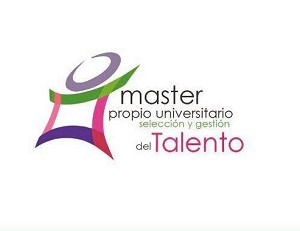The Human Resources department of an organization is one of the basic aspects that allows the proper functioning of the company.
However, there is often a too simplistic view of the tasks that take place in it, assuming that everything is reduced to selecting personnel, training from time to time and taking charge of certain administrative tasks related to workers.
Nothing is further from reality. Within an HR department there can be (and in fact always occur, in the case of medium and large sized companies) varied and sometimes very complex work processes, given that they have to do with the element that contains the most potential in any organization: people.
Taking this into account, throughout this article you will find a series of basic principles that any HR department must take into account
Keys to success in an HR department in a company
These are several of the most important elements for an HR department to function correctly and cover all work areas of an organization.
1. Put a lot of emphasis on the prevention of occupational risks
It is not just a matter of complying with the regulations: a place where workers spend a lot of time cannot afford not to ensure its integrity in every possible aspect
Not to say that if a workspace is perceived as intrinsically threatening due to the conditions in which it is located, little or nothing can be done to compensate for that in terms of satisfaction and predisposition to have a team mentality.
2. Don’t forget the importance of informal relationships
The informal relationships established among themselves by the people of an organization are as important or more than the formal relationships that remain on paper reflected in the structure of the organization chart.
Forgetting this facet of the reality of companies implies turning our back on the dynamics that give rise to the work environment, the appearance of conflicts in the workplace, the information flows used to work, etc.
Therefore, knowing these relationships well It helps both to detect opportunities and to detect problems in time, such as : promotion systems in which the same people are always promoted, ways of working that encourage conflict and the spread of rumors to harm someone, influential people who have a work philosophy that is too intrusive, etc.
3. Do not assume that all incentives must be economic
It is true that strengthening economic incentives is usually a relatively safe bet, in the sense that it does not normally produce new problems if there are none already.
However, it is sometimes an inefficient expense, and assuming that by default all incentive systems should be based on this means losing opportunities when connecting with workers or generating community based on incentives that can be as or more stimulating than those based on money. Other options adapted to the values and sources of motivation of the people who make up the organization must also be considered.
4. Go beyond job interviews
Interviews are not the only resources that Human Resources professionals have when carrying out personnel selection processes; Fortunately, there are many tools adaptable to different needs
5. Develop good performance evaluation methods
There are no magic recipes in this: each organization must apply its own ways of evaluating the performance of workers, taking into account their characteristics and objectives in terms of productivity goals. Yes indeed, There are a series of criteria and principles from which HR professionals can start to establish their own formula
6. Have an efficient database system
It may seem simple, but failures in this aspect mean losing a lot of room for maneuver and agility when managing information about workers.
7. Have a good job analysis method
Job analysis is useful for many things For example, to know what profile of candidates to look for when issuing job offers and selecting people, to detect ergonomic or workflow failures in a chain of team tasks, or to foresee the possible risks of this type of tasks.
8. Create goal-oriented training plans
The HR departments that really help meet the needs of an organization and its staff are not content with creating training programs “that sound good”: they care that these learning and/or training initiatives respond to specific purposes that fit with the context in which you work.
That is, they must be designed keeping in mind the functions that, upon completion, those who have gone through this preparation process must know how to perform.
9. Know how to establish the appropriate communication channels
In many organizations, when containing many people, we often make the mistake of assuming that all workers will end up spontaneously learning everything they need to know to carry out their work well, or to get involved in the activities that take place. in the company.
It is a serious mistake that constantly causes problems so instead of putting patches once misunderstandings have occurred, we must ensure that there is already a constant and fluid communication system that is part of the structure of the organization.
10. Don’t forget the small details of administrative management
Yes, it is true that part of the tasks that take place in an HR department consist of seemingly simple tasks based on what is commonly known as “paperwork”. However, we must not forget that if this area of work is not mastered, everything else is impossible.
Therefore, we must have professionals prepared to know what to do at all times in this regard, without leaving room for ambiguity and trusting that everything is fine even if it is by chance.
Do you want to train in Human Resources?

If you are thinking of specializing in the field of Human Resources or in any of its sub-divisions, you will surely be interested in knowing the University Master’s Degree in Talent Selection and Management from the University of Malaga (UMA)
In this post-university professionalization and specialization program it is possible to learn everything related to the processes of selection, training and creation of organizational development, and managers from many of the main companies with a presence in Spain collaborate in it: Leroy Merlin, Meliá Hotels International, Telefónica, Randstad, and more. You will find more information about the Master on this page.









